your silence is a world for my language: exhibition — 180 projects, ssm
180 Projects in Sault Ste Marie mounted my solo show June-July, 2021. It was a joy and a deep sense of peace to see the work installed, after working on it for three years. I hadn’t been able to see the panels as a collection, or even hung at full length until we installed. The space was gorgeous, and I’m grateful for Andrea Pinheiro, the curator’s, eye and sensitivity to the work.
To learn more about this durational eco/poetic project:
See the process here.
Listen to my artist talk here.
Listen to the CBC Radio Interview:
Part 1 : https://ici.radio-canada.ca/.../rattrapage-du-lundi-28.../4
Part 2 : https://ici.radio-canada.ca/.../rattrapage-du-lundi-28.../16
Read Judy Martin’s review here.
You may also order a back issue of Room Magazine — one of the project images won 2nd place in their cover contest — HERE
The images are available for purchase — contact me directly (I’ve not got them loaded in the Cart yet).
The beautiful full-colour project catalogue is available for sale — visit the CART
Funder: Crafts Projects, Ontario Arts Council and artist fee from 180 Projects via the SSM Council arts fund
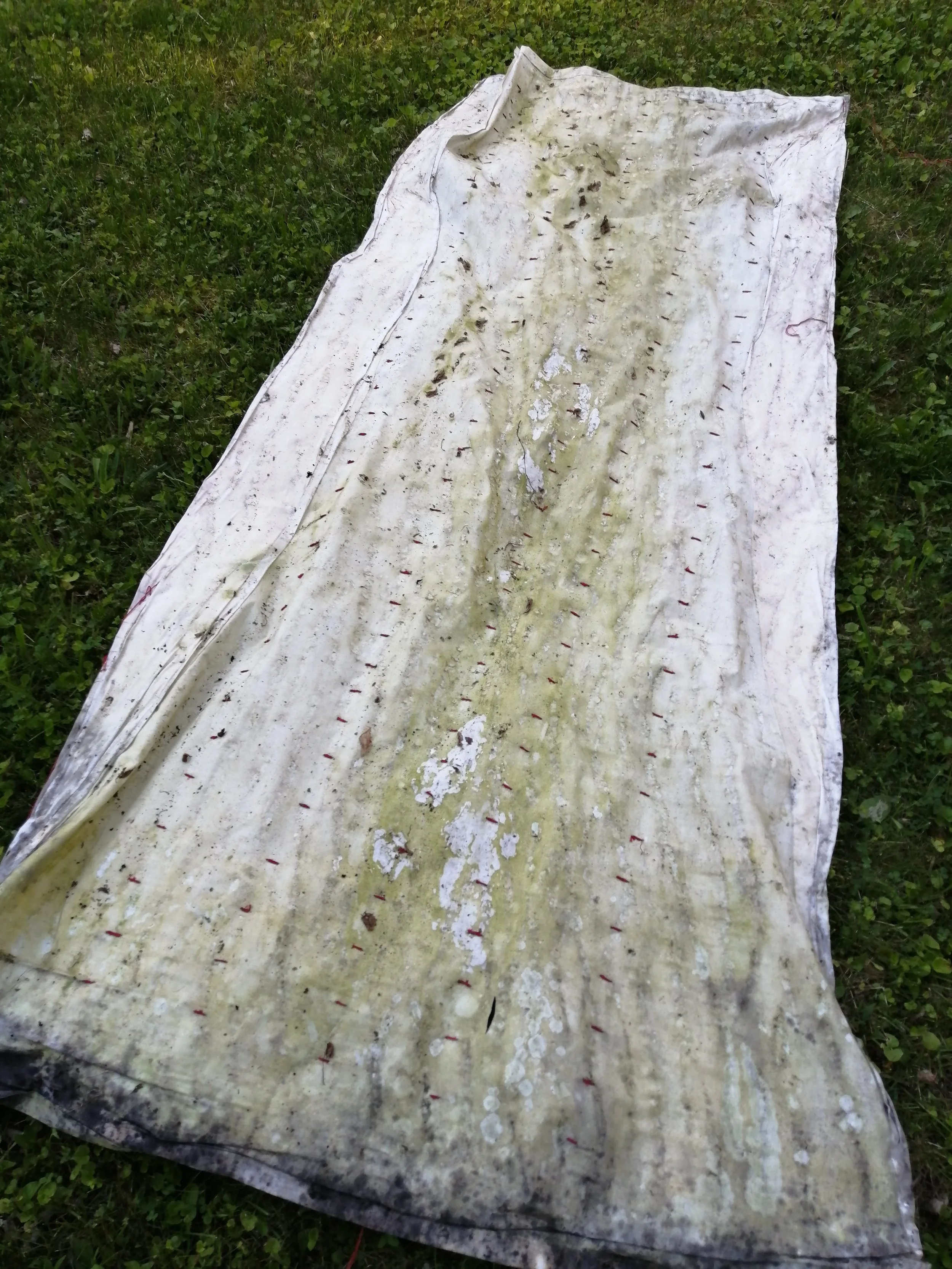
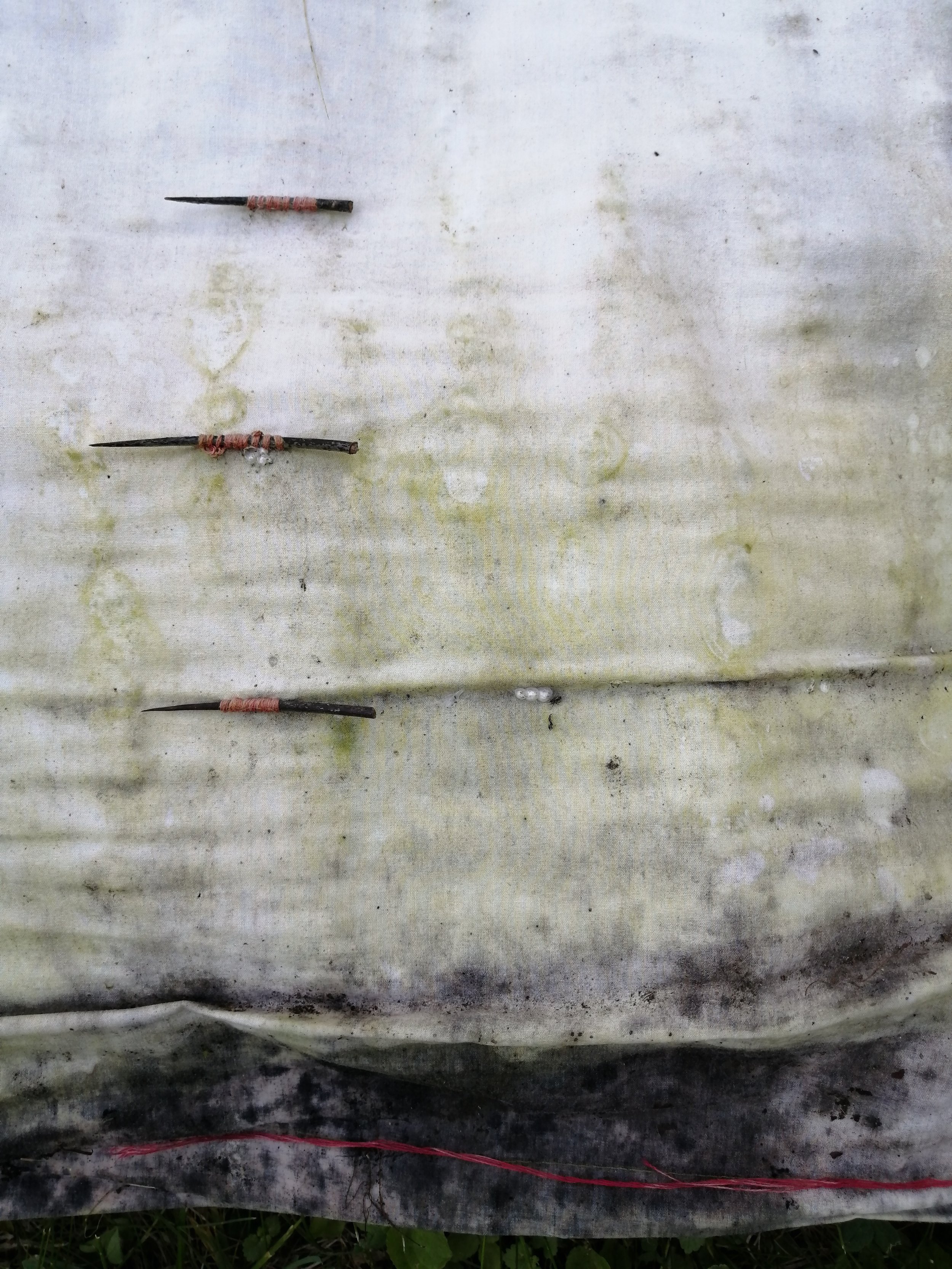
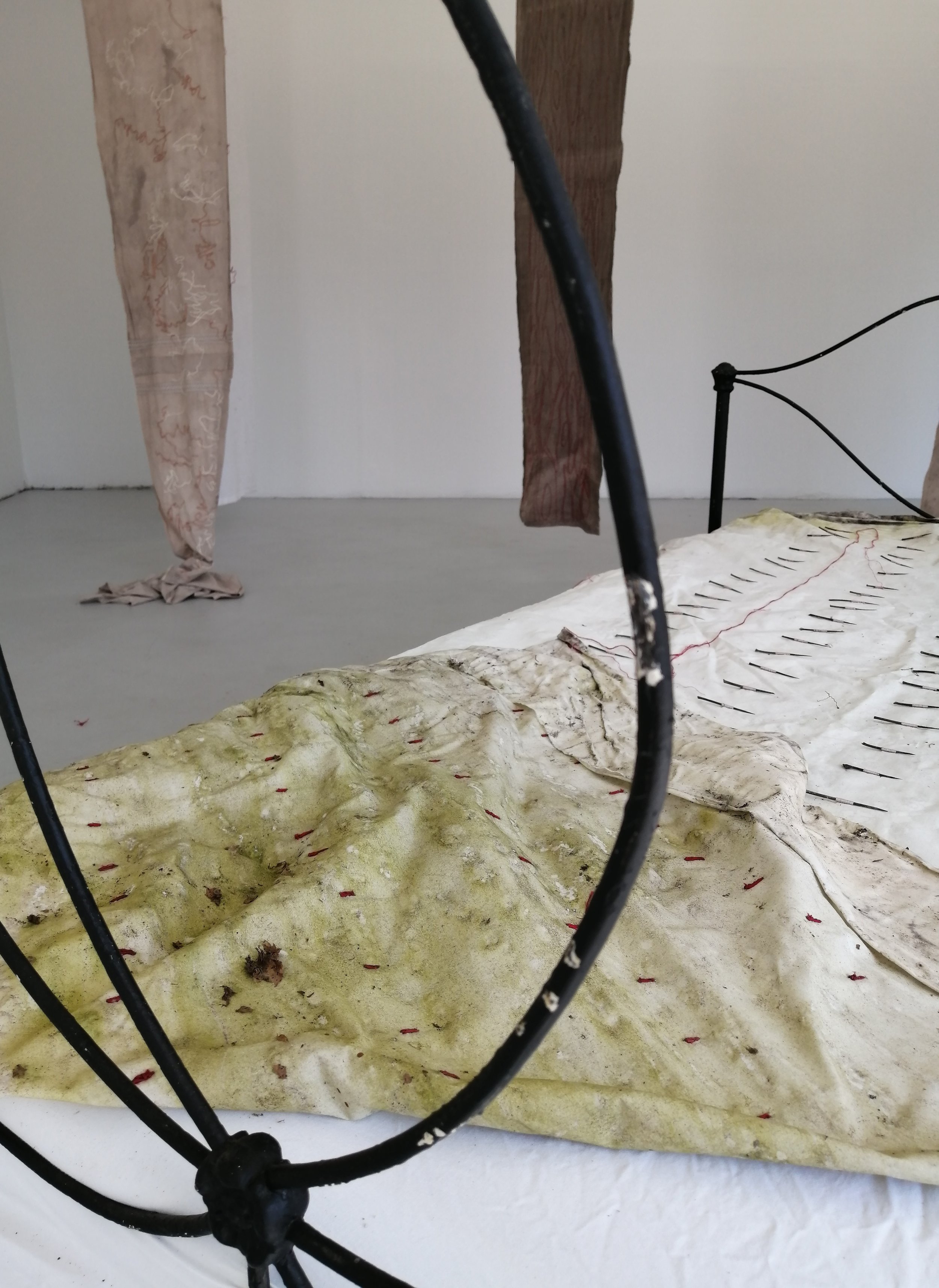
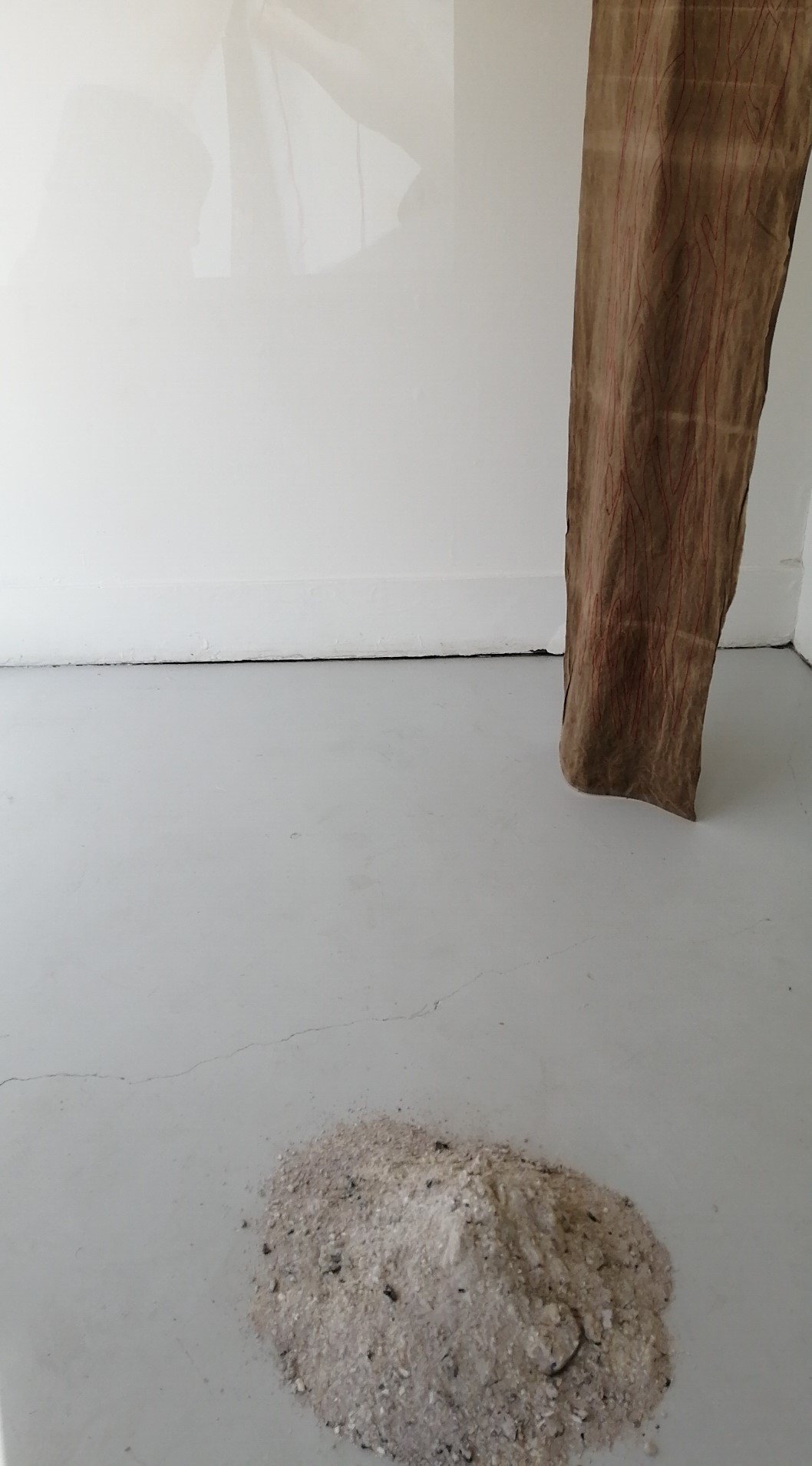
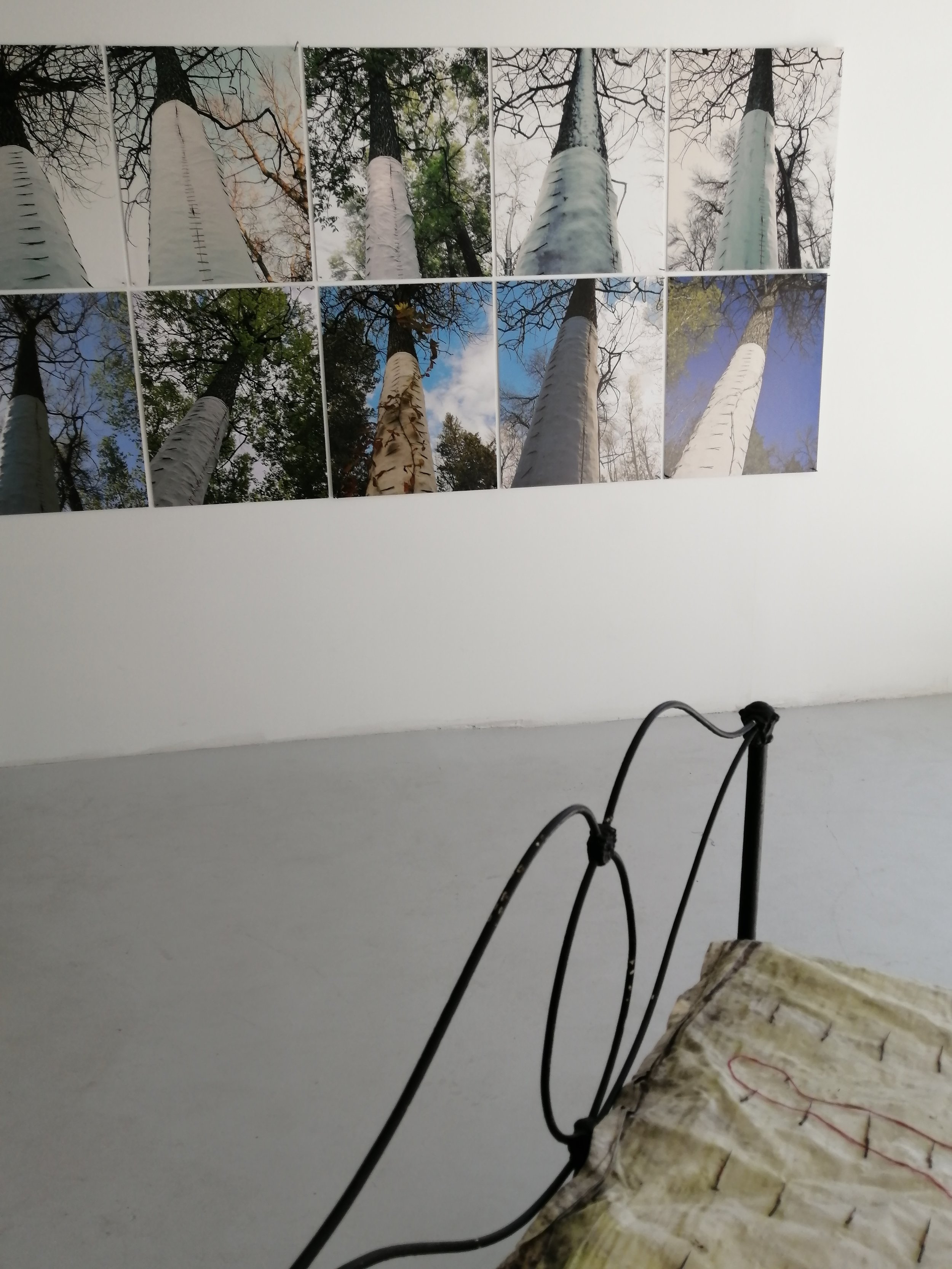
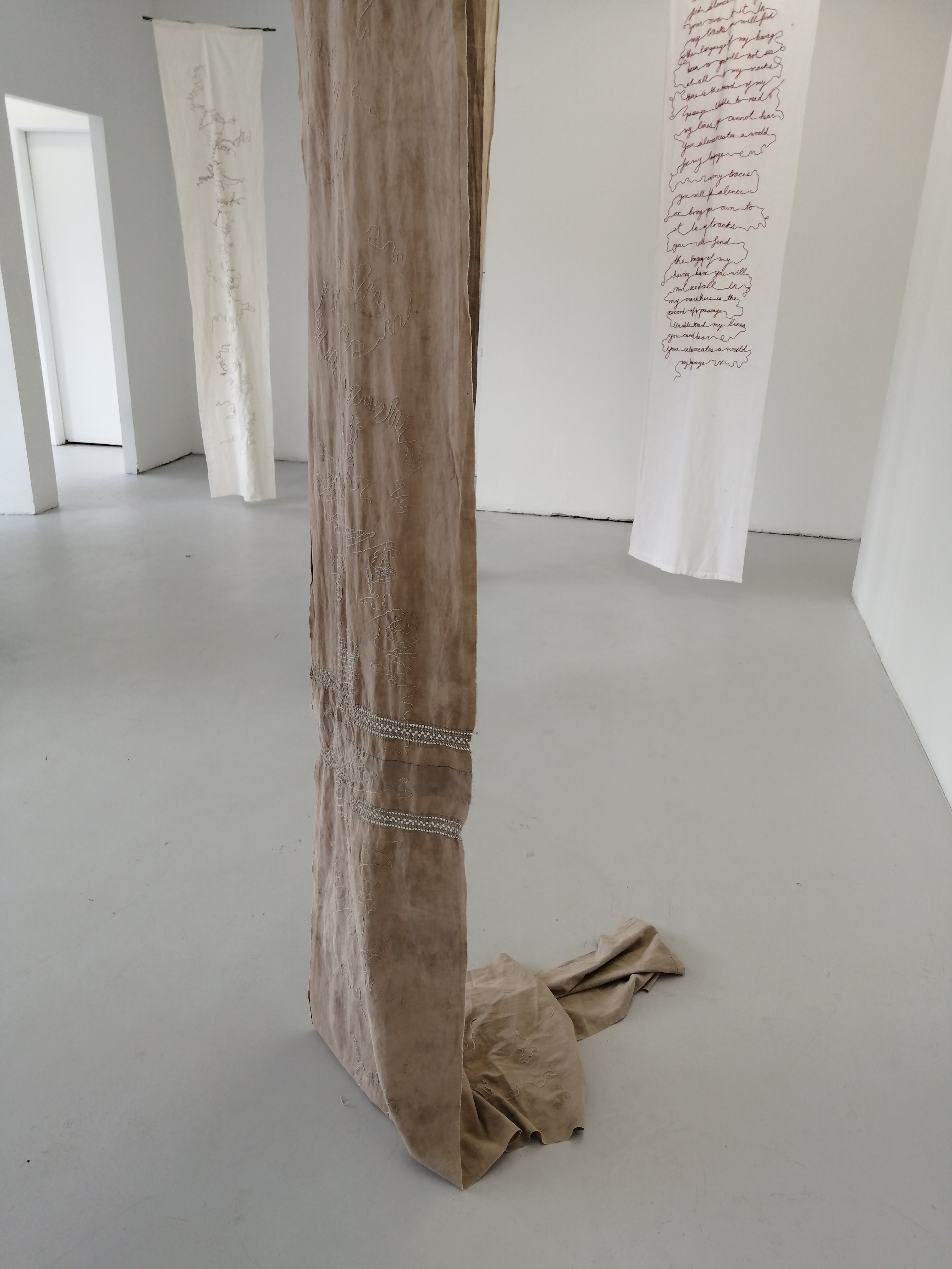
What People Are Saying
“Sophie is a poet and understands the materiality of used domestic cloth as a language. During our time together, I was continually astounded by the conceptual depth of her ideas. The idea for installation-based work of tall hand-stitched linen panels that can be moved through communicates personal grief, environmental concern and political statement. It, in combination with the video presentation of her hands at work and her poetic writing, are a powerful work.”
— Judy Martin
“The capacity of a culture to enact environmental violence is intimately intertwined with its capacity to devalue and harm women. Both the discourse of eco feminism and the wisdom of most if not all indigenous cultures speak to the ecological imperative of honouring women and the earth. While living amongst a dominant culture in which the land is so often commodified and de-personified the sense of powerlessness can be overwhelming. How do we gain hope for restoration of respectful relations? How do we heal the hundreds of years of broken relations? How do we heal the self, a process that many of us believe cannot be separated from the healing of land? Edwards’ care-full gesture of bandaging the ash trees evokes a sense of how one might attempt to triage the ecological damage in one’s proximity, however futile, still rends the heart open, and might carry more weight on the energetic plane than might be visibly apparent.”
— Andrea Pinheiro, curator
“Wonderful work! Exquisite!”
